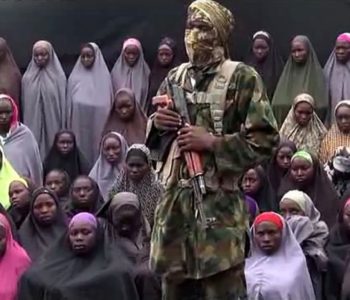 Press Releases
Press Releases
AHEAD OF THE INTERNATIONAL DAY OF PEACE THE NIGERIAN…
As we celebrate the international day of peace, we appeal to the Nigerian government to increase the use of dialogue in internal agitations and conflict resolution and by so doing, develop a sense of joint ownership of the process and become stakeholders in identifying new approaches to address common challenges
Nigeria has experienced a high rate of conflict and civil agitations in recent times. From the insurgency in the northeast where several Nigerian citizens have been killed and others left internally displaced to poor governance, human rights abuses and human rights violations, uneven development, environmental degradation to military invasion of states in the northeast to quell the “insurrection.” The number of violent conflicts increases daily as the government sometimes adopts a posture that shows an unwillingness to engage in dialogue to transform societies and find real solutions to the country’s most complex challenges.
As the world comes together to show its commitment to peace, the Nigerian Coalition for the International Criminal Court urges the Nigerian Government to increase the use of dialogue in internal agitations and conflict resolution in Nigeria.
Goal 16 of the United Nations Sustainable Development Goals is dedicated to the promotion of peaceful and inclusive societies for sustainable development, and the provision of access to justice for all. It is high time that our leaders explore the use of dialogue as a means of resolving internal agitations in the country in other to achieve peace.
Nigeria, the most populous country in Africa, practicing a democratic system of government should desist from unusual use of force in addressing internal issues. We as a nation are binded by international obligations and as such should explore reasonable measures to resolve conflicts rather than resort to force at the slightest opportunity. The UN secretary general António Guterres today while addressing the annual gathering of world leaders at the United Nations Headquarters, announced the creation of a high-level advisory board on mediation. He stressed the need for “a surge in diplomacy today” and “a leap in conflict prevention for tomorrow,” he said that it is possible to move from war to peace and from dictatorship to democracy. Dialogue is crucial to the maintenance of peace and security and could promote reconciliation in the aftermath of conflict and could also introduce moderate voices into polarized debates,” he added; “At a time when prejudice and hatred are all too common, when extremists seek new recruits through incitement and identity-based appeal, when politicians use divisiveness as a strategy to win elections — dialogue can be an antidote.”
It is our believe that if the leaders of this great country employ adequate use of dialogue then it will be unnecessary to deploy the military to the east to cause unrest and acts of genocide. Neither will there be a need for the operation python/crocodile dances amongst others.
Naomi Emeka
International Criminal Justice Counsel
NCICC



